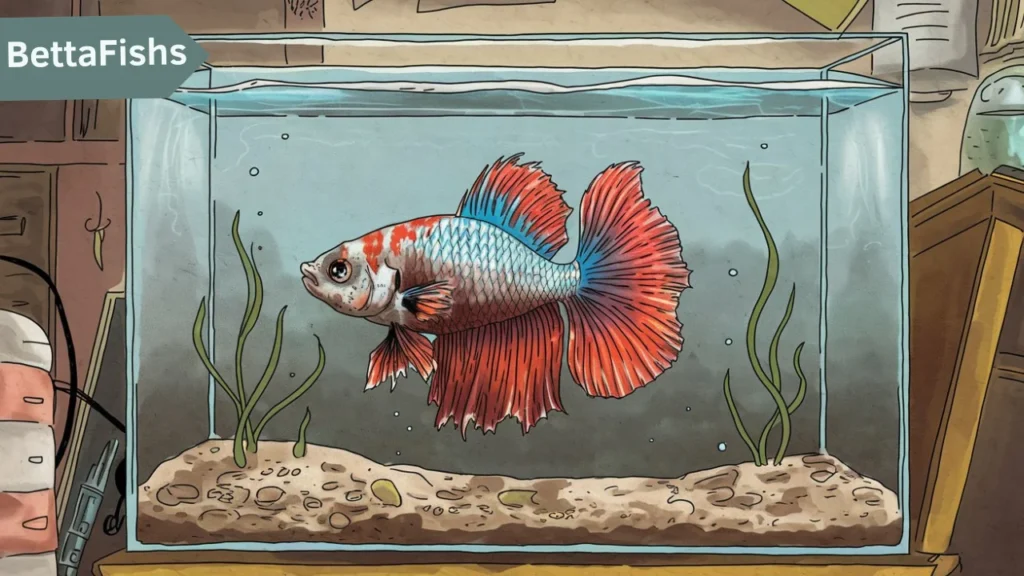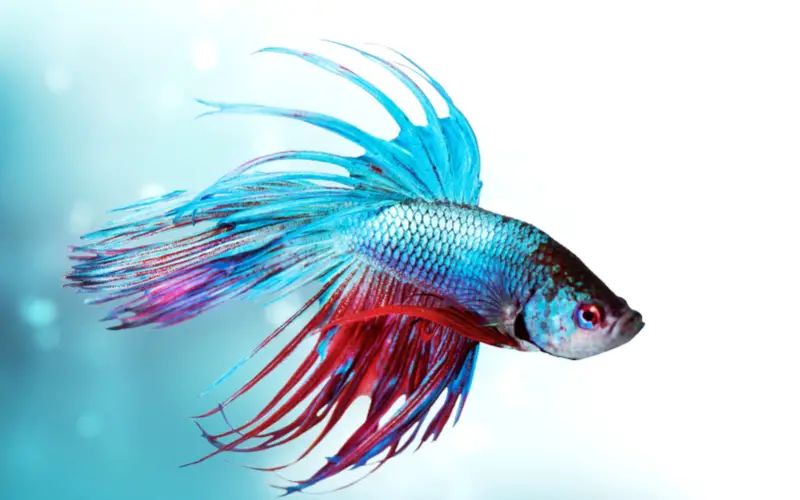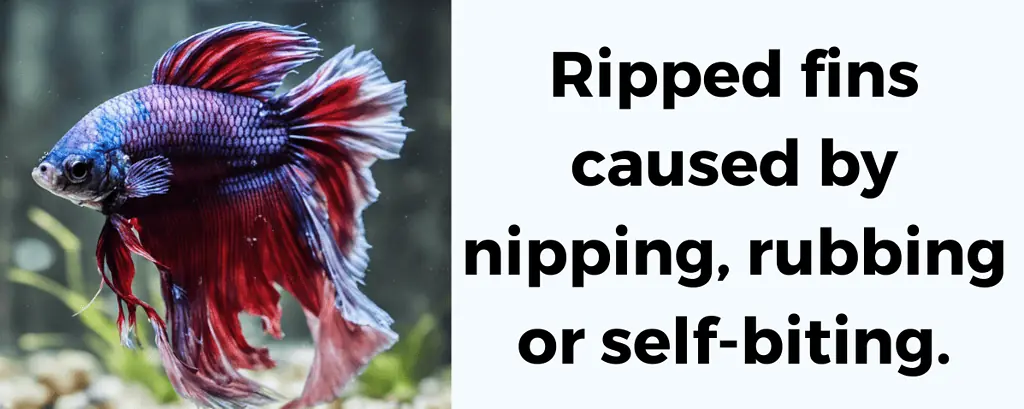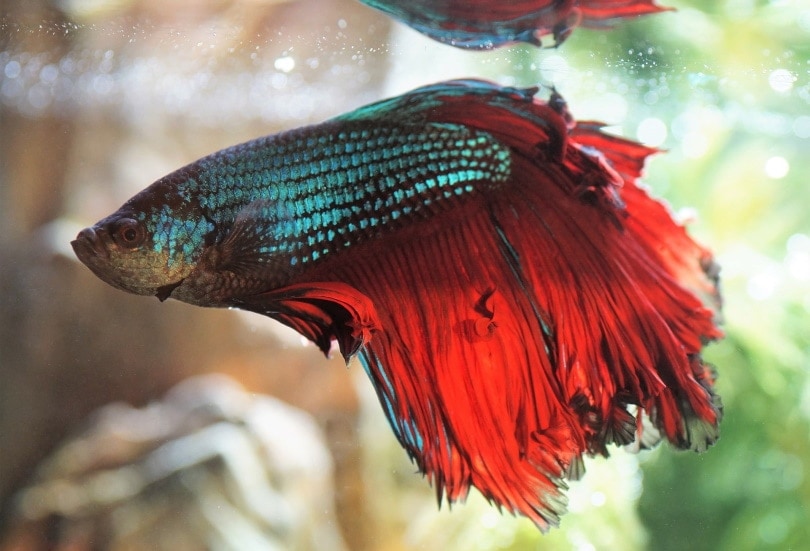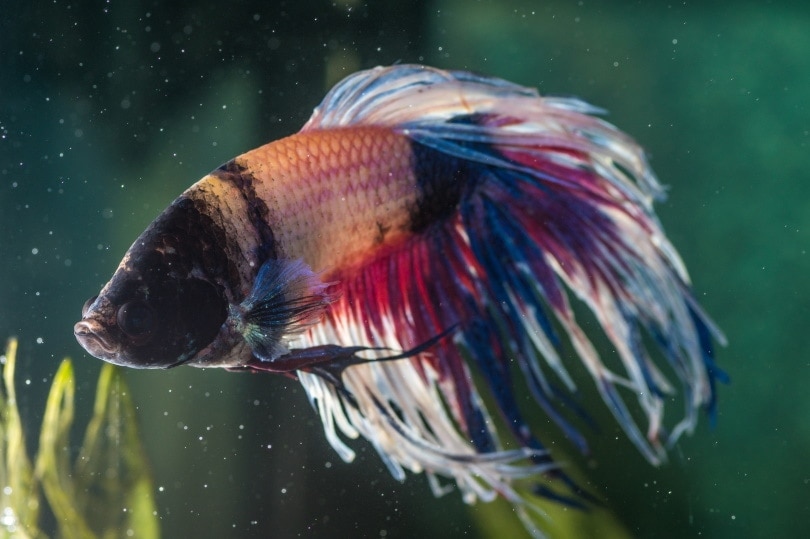So, you've got a Betta, huh? Those flamboyant little dudes with their flowing fins and a permanent "stink eye" look? They're like the divas of the fish world, and just like any diva, they have their moments.
Ever wondered if your aquatic pal is actually happy, or secretly plotting your demise? It's all about reading the signs!
The Fin-tastic Tell-Tales
First, let's talk fins. These glorious appendages are like a Betta's mood ring. A happy Betta proudly displays its fins, like a peacock showing off its plumage.
But a stressed Betta? Their fins might be clamped close to their body. Think of it as the fish equivalent of a teenager slamming their bedroom door.
Color Me Confused
Next up, color! Healthy Bettas are vibrant, bursting with pigment like a tiny, swimming rainbow. It's like they're wearing their best outfit, ready for a night on the town (or, you know, swimming around a tank).
A stressed Betta, on the other hand, might appear pale or faded. Imagine them in a sad, monochrome movie – that's your stressed fish.
The Case of the Missing Appetite
Bettas usually have pretty good appetites, they are always ready to eat and they act like they haven't had food in days. They're like tiny, perpetually hungry piranhas (minus the whole flesh-eating thing).
If your Betta suddenly loses interest in food, it's a red flag. It's like your favorite pizza place suddenly closing down – something is definitely wrong.
Acting All...Weird
Now, for the behavioral clues. Bettas are naturally curious and active. They explore their surroundings, flare at their reflection (gotta love that ego!), and generally act like they own the place.
But a stressed Betta might become lethargic, spending most of its time hiding or at the bottom of the tank. Imagine your Betta suddenly transforming into a couch potato – that's not a good sign.
The "Zoomies" and Other Oddities
Sometimes, stress manifests in weird ways. You might see your Betta darting around the tank erratically, like it's being chased by an invisible ghost. These are often called the "zoomies," but in this case, they're not so fun.
Another sign is excessive scratching against objects in the tank. It's like they're trying to scratch an itch that just won't go away.
The Tank's the Thing
Don't forget to check the tank itself! Poor water quality is a major stressor for Bettas. Imagine living in a perpetually dirty room – you wouldn't be too happy either.
Make sure the water is clean, properly filtered, and at the right temperature. Regular water changes are essential.
A clean tank is a happy tank, and a happy tank means a happy Betta.
A Little Love Goes a Long Way
Ultimately, keeping your Betta happy is about providing a safe, comfortable, and stimulating environment. Think of it as creating a tiny aquatic paradise.
Observe your Betta regularly. Get to know its personality and quirks. After all, you want to be able to recognize when your little buddy is feeling less than fin-tastic!
And remember, if you're ever unsure, a trip to a vet who specializes in aquatic animals is always a good idea. They can help you diagnose any underlying health issues that might be contributing to your Betta's stress.






